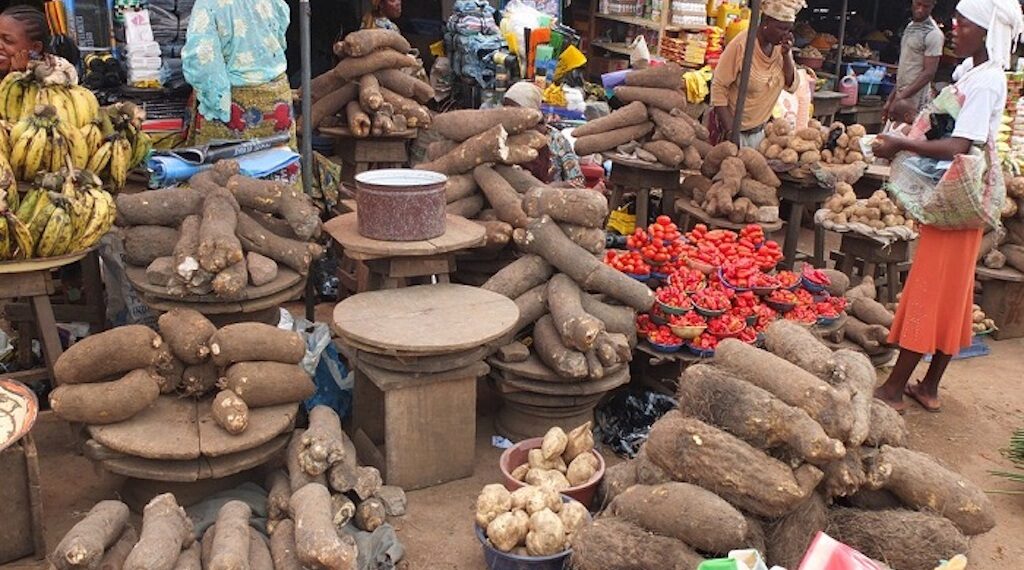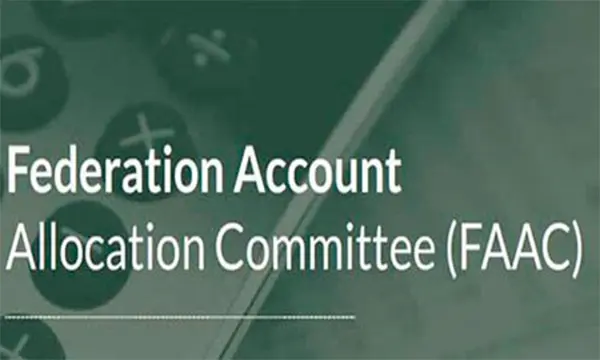Agriculture
Nigerian Government Commences training of Irish potato farmers on FBS/GAP

The Federal Ministry of Agriculture and Rural Development has begun a five-day training on Good Agricultural Practices (GAP) and Farmers Business School (FBS) for 60 Irish potato farmers in Katsina State.
Mr Adegoke Adedamola, the Coordinator of, Irish potato value chain in the ministry, at the opening of the training on Monday in Katsina, said they are targeting 3,000 beneficiaries nationwide.
According to him, the capacity building training was organised because the Irish potato is one of the major crops consumed in Nigeria, and 90 per cent of it has been imported.
“Therefore, we felt it is right to see how we can build the capacity of our farmers in northern states that have the capacity and corporate advantage to produce the crop, especially during the harmattan season.
“And we have seen that Katsina had that comparative advantage. That is why we are here to see how we can quickly build their capacity on the FBS and GAP.
“The ministry is collaborating with a German International Corporation (JIZ) to see how we can promote this innovation around the country.
“We have done it in Adamawa, Plateau, Kano States and Obudu, where they have good locations where Irish potatoes can be developed. And we are still going to other states like Taraba.
“As we are building the capacity of our farmers, we believe that they are going to produce more, and we are also going to support them with an improved variety of Irish potato seeds,” he said.
In her opening remarks, the Director, Federal Department of Agriculture (FDA), Hajiya Karima Babangida, said the training was on re-educating Irish potato farmers on farming as a business rather than as a culture.
Babangida was represented by Alhaji Abdullahi Sirajo, desk officer extension, Katsina field office.
According to her, “You would agree with me that for decades, farming generally has been practised from the perception of being a culture of our forefathers instead of being viewed as a profession.
“In the pursuit of food security and nutrition for our country, and if we are to achieve these, we must begin to change the narratives about farming as a culture to farming as a business.
“It is in this regard that the Federal Ministry of Agriculture and Rural Development, in collaboration with GIZ, has been a strong advocate for this paradigm shift in our agriculture.
“Further to the foregoing, it is a known fact that Irish potato is a premium cash crop sought after by many here in the country and other West African countries.
“The purpose of this five-day workshop is to bring together Irish potato farmers in a class of 30 each to build their capacity on best practices and simple farming business model concepts.
“In order to increase their technical know-how on the job to stimulate productivity and more income from doing the same job,” she said.
She added that it is important to know that GAP/FBS is capable of starting a potato revolution in Katsina that has the capacity to grow potatoes during the dry season.
“In view of the above, it is important for all participants to make good use of this training to learn and adopt best farm practices and new business innovations that would be taught over the next five days.” she disclosed.
The Chairman, Irish potato farmers in Katsina, Alhaji Salele Malumfashi, commended the Federal government’s efforts in ensuring that its members benefited from various interventions.
He further called on the state government to provide them with enough land so that they can produce the crop in large quantities for the people of the state to use.
“On the issue of orange flesh sweet potato, it is very important we give it more attention because bread bakers in the state need it more but the product is not enough.
“The Sokoto and Zamfara governments have provided our colleagues with lands, therefore we are appealing to the state government to do the same for us,” she added. (NAN)
Agriculture
Fintiri Unleashes N2bn Boost for Farmers as Adamawa Rolls Out 2025 Agricultural Support Programme

The Adamawa State Government has launched the 2025 Agricultural Support Programme aimed at empowering smallholder farmers and enhancing food security across the state.
Commissioner for Agriculture, Prof. David Jatau, disclosed this on Friday while briefing journalists in Yola. He revealed that Governor Ahmadu Umaru Fintiri had approved a substantial N2 billion for the initiative, which targets increased agricultural productivity in the upcoming farming season.
According to Jatau, the programme—which is already underway—will provide subsidised agricultural inputs such as fertilisers, improved seeds, and other essential materials to farmers in six local government areas.
“The programme has already commenced in six LGAs—Madagali, Michika, Hong, Maiha, Demsa, and Ganye,” he said. “By next year, during the rainy season, we will extend the programme to the remaining LGAs.”
He explained that 300 hectares of farmland would be cultivated in each of the participating local governments, with 300 farmers benefitting per council.
To ensure fairness and transparency, Jatau said a multi-stakeholder committee had been constituted to oversee the beneficiary selection process. The committee comprises representatives of traditional councils, local government authorities, security agencies, youth groups, and women organisations.
“We are also equipping extension workers with training to offer farmers guidance on modern agricultural techniques for improved yield,” he added.
The commissioner noted that the intervention would not only increase food production but also generate employment, improve rural incomes, and contribute to economic stability in farming communities.
Jatau also revealed that the state government is collaborating with non-governmental organisations and agricultural development bodies, with over 2,700 hectares of farmland pledged by development partners for cultivation.
He reaffirmed the Fintiri administration’s commitment to achieving food self-sufficiency and urged beneficiaries to make the most of the programme.
Agriculture
KWASU Microfinance Bank disburses loan to farmers

The Kwara State University (KWASU) Microfinance Bank has provided loan facilities to farmer groups in and around Malete, Moro Local Government Area.
The Vice-Chancellor and Chairman of the Board of Trustees, KWASU Microfinance Bank, Prof. Jimoh Shaykh-Luqman, announced this while presenting offer letters to the farmers’ associations at a formal event held on the university campus.
Addressing the farmers, the Vice-Chancellor, represented by the Deputy Vice-Chancellor (Administration), Prof. Moshood Jimba, said the agricultural loan scheme aimed to support farmers in boosting food production and enhancing food sustainability.
“The loan is meant to support your farm operations, especially in the upcoming planting season,” he said.
Prof. Shaykh-Luqman reaffirmed KWASU’s commitment to its mantra of being a “University for Community Development,” leveraging its expertise and resources to initiate programmes that drive local development.
The Managing Director and Chief Executive Officer of KWASU Microfinance Bank, Alhaji Hakeem Hassan, noted that the agricultural loan scheme was piloted last year with 15 farmers as beneficiaries.
He added that the pilot scheme yielded positive results for both the farmers and the bank, as all beneficiaries successfully repaid their loans.
Following this success, he said, the scheme had been expanded to include more farmers under various farmers’ associations.
The News Agency of Nigeria (NAN) reports that the associations benefiting from the agricultural loan scheme include Alanu Agbelere Farmers Group, Agbedola Ketere Group, and Itesiwaju Agbe Group Omoni.
Others are Agbeloba Farmers Association (Malete Market), Agbeyewa Elemere Farmers Group, Agbe Olofeere Group, and Agbeloga Malete Farmers Group.
Speaking on behalf of the farmers, the Chairman of Agbeloba Farmers Association (Malete Market), Alhaji Mohammed Abdulrazaq, expressed gratitude to the university and the bank for their trust.
He pledged, on behalf of the beneficiaries, to utilise the loans effectively and ensure prompt repayment.
Agriculture
Kano Govt. implements N2.3bn livestock empowerment programme

The Kano State Government has begun implementing the second phase of its livestock empowerment programme valued at N2.3bn under the Kano State Agro-Pastoral Development Project (KSADP).
The Commissioner for Agriculture and Natural Resources, Dr Mamood Danjuma, disclosed this while addressing newsmen on Thursday in Kano.
Danjuma said the initiative aims to support beneficiaries with livestock, feeds, drugs, and salt lick to enhance their economic well-being.
According to him, 911 beneficiaries are being supported with two rams each, feed for three months, drugs and salt lick, while 2,386 women are being supported with two goats and a buck goat in the poorest households in the state.
He explained that the total package under the empowerment programme showed that 1,342 bulls were procured by the government at the cost of N560m, 1,822 rams were procured at the cost of N175m and 7,158 goats bought at the cost of N451m.
“Under the cattle scheme, each cattle gains 100kg over a period of 120 days. The fattening period is for 120 days, making three cycles possible in a year.
“As for the small ruminants fattening scheme, with the same 120-day fattening period yielding an extra 15kg/animal.
“The project promotes goats’ reproduction through women who will take care of the animals and sell the young ones to improve their income and standard of living,” he said.
He said that the programme promotes economic empowerment, particularly among women, by providing them with livestock to care for and sell, ultimately improving their income and standard of living.
-

 Headlines4 years ago
Headlines4 years agoFacebook, Instagram Temporarily Allow Posts on Ukraine War Calling for Violence Against Invading Russians or Putin’s Death
-

 Headlines4 years ago
Headlines4 years agoNigeria, Other West African Countries Facing Worst Food Crisis in 10 Years, Aid Groups Say
-

 Foreign3 years ago
Foreign3 years agoNew York Consulate installs machines for 10-year passport
-

 News1 year ago
News1 year agoZero Trust Architecture in a Remote World: Securing the New Normal
-

 Entertainment3 years ago
Entertainment3 years agoPhyna emerges winner of Big Brother Naija Season 7
-

 Headlines1 year ago
Headlines1 year agoNigeria Customs modernisation project to check extortion of traders
-

 Economy2 years ago
Economy2 years agoWe generated N30.2 bn revenue in three months – Kano NCS Comptroller
-

 Entertainment2 years ago
Entertainment2 years agoMovie download platform, Netnaija, announces closure














